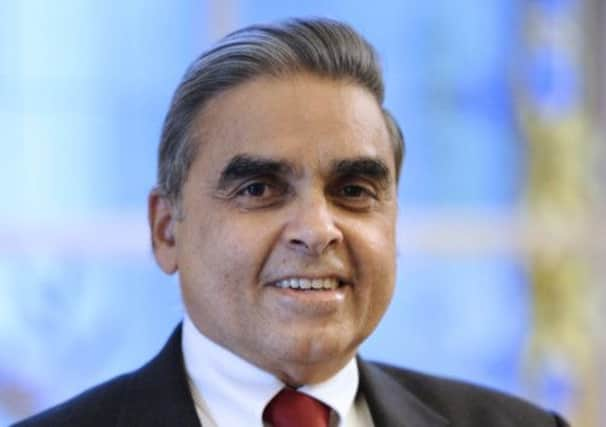Kishore Mahbubani: Three questions key to golden age


But we can gain greater purchase on it by considering three other questions.
The first is whether the United States will regain its standing as a source of moral leadership. Despite its flaws, America did provide such leadership, beginning at the end of the Second World War.
Advertisement
Hide AdAdvertisement
Hide AdBut Americans’ anger following the 9/11 attacks drove them to support policies that they once would have considered inconceivable. In the name of the “global war on terror,” they have tolerated torture; accepted the illegal invasion of Iraq; and allowed innocent civilians to become collateral damage of drone strikes.
In order to restore America’s moral leadership, president Barack Obama must make good on his early rhetoric which demonstrated genuine regard for the oppressed. In 2007, during his first presidential campaign, he wrote that America “can neither retreat from the world nor try to bully it into submission. We must lead the world, by deed and by example.” But Mr Obama cannot do it alone – and, so far, neither the American public nor the US Congress seems committed to reconnecting with its moral compass.
The answer to the second major question shaping the world’s future – whether China will regain its economic momentum – also appears to be “no,” at least in the short term, with most experts agreeing that China’s export- and investment-led growth model has all but exhausted its potential.
Likewise, China’s government cannot continue to waste resources on economic-stimulus packages that have led to industrial overcapacity and rocketing local-government debt. And China cannot move toward a more market-oriented, efficient, and innovative economy with bloated state-owned enterprises blocking the way.
Whether China can develop and implement a viable new economic-growth model in post-crisis conditions depends on whether president Xi Jinping and premier Li Keqiang can revive the legacy of their predecessors, Deng Xiaoping and Zhu Rongji. In other words, China’s future – and that of the global economy – depends on how committed its leaders are to overcoming vested interests and pursuing comprehensive structural and policy reform.
The final question is whether Europe and Japan will recover their “animal spirits”. Given Europe’s current malaise and the waning impact of prime minister Shinzo Abe’s “Abenomics” in Japan, it is difficult to believe their economies, which fuelled global output growth for decades, will regain their former stature.
Fortunately, the US and Chinese economies are underpinned by societies that remain dynamic, vibrant, and hopeful. Young people in other parts of Asia, especially India and the ten ASEAN countries, are similarly optimistic.
Africa, with its population of one billion, is also gaining economic momentum, adding further to the rapid expansion of the global middle class.
Advertisement
Hide AdAdvertisement
Hide AdDespite the massive challenges that countries like Syria, Somalia, Egypt, and Afghanistan currently face, and global challenges like food security and climate change, the world has reason to be hopeful about the future. Notwithstanding today’s tragic and terrifying headlines, we may be entering a new golden age of human history.
• Kishore Mahbubani is Dean of the Lee Kuan Yew School of Public Policy at the National University of Singapore.